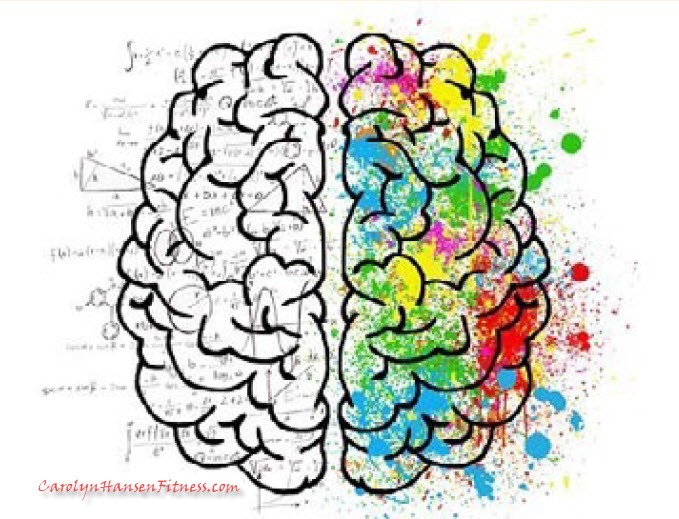
There’s a new player on the bock when it comes to healthy eating.
It’s called Intermittent Fasting. IF is not a new concept, in fact, it was practiced naturally by our ancestors because they literally had no choice. Access to food wasn’t about opening the fridge and reaching for a snack. They had to find their food first and this type of eating strategy imprinted itself in our DNA.
The IF approach is about spending as much time as possible in the fasted state by consuming two meals a day rather than three, and, has nothing at all to do with starving yourself.
The benefits of fasting are well-documented and are thought to include a rebooted immune system, more stable energy levels, and even a slowed aging process. And, most importantly, excess body fat drops fast, because these fasting periods force your body to dip into its fat stores for fuel. This process is entirely natural for the human body but is circumvented by the modern three-meals-a-day approach to eating.
The reality is, hunger is something we should be experiencing every 16-24 hours, not every 4-5 hours. With IF, you can choose breakfast and lunch or lunch and dinner during a 16-hour window. This method of eating retrains your body to become “fat adapted” – meaning your body becomes adapted to burning stored fat for energy rather than being dependent on sugars from food. Spacing out eating this way, puts your mind and body in tune and you understand what it feels like to be really hungry, something most of us have never really experienced because the Western world spends little to no time (apart from sleeping) in the fasted state. We, unfortunately, have become constant grazers.
If you are looking to lose weight, IF is your answer. It has proven itself to be a healthy approach to losing weight without having to deal with the effects of hunger.
Ongoing clinical research and studies overwhelmingly support ditching “three square meals a day” in favor of two. In both animal and human studies done over the last 15 years, fasting has been shown to reduce the markers of chronic diseases such as heart disease, cancer and diabetes while improving aspects of health that inevitably contribute to the lengthening of human lifespan.
Think about it this way – when you fast your body starts to cleanse and heal itself.
HOW IT WORKS
In place of three square meals a day, or a handful of smaller meals throughout the day, you will have a specific window of time when you’re allowed to eat. This could take the form of a few hours a day, or the fasting window could represent certain days of the week. During that time you can eat whatever you want – within reason.
If you practice fasting and stick to a mostly whole food diet, rich in vegetables, lean proteins, healthy carbohydrates and fats, you will see changes in your body and in the way you feel. However, if your food choices include unhealthy choices such as processed and chemically laden foods, you won’t receive the benefits that fasting provides. Another “sweet” benefit you’ll receive is your occasional splurges on chocolate or cheese won’t have as big an impact as they might if you were on a calorie-restrictive diet.
BENEFITS of INTERMITTENT FASTING
Reduced:
- blood lipids (blood fats, including decreased triglycerides and LDL cholesterol)
- blood pressure (perhaps through changes in sympathetic/parasympathetic activity)
- markers of inflammation (including CRP, IL-6, TNF, BDNF, and more
- oxidative stress (using markers of protein, lipid, and DNA damage)
- risk of cancer (through a host of proposed mechanisms)
Increased:
- Cellular turnover and repair (called auto phagocytosis)
- Fat burning (increase I fatty acid oxidation)
- Growth hormone (the youth hormone) release (hormonally mediated)
- metabolic rate (stimulated by epinephrine and norepinephrine release)
- healthy gut bacteria
Improved:
- appetite control (through changes in Peptide YY and ghrelin levels)
- blood sugar control (by lowering blood glucose and increasing insulin sensitivity)
- cardiovascular function (by offering protection against ischemic injury to the heart)
- effectiveness of chemotherapy (by allowing for higher doses more frequently)
- create more brain cells and improve brain POWER
It’s clear that many of the multitude of health benefits of IF are related to changes in hormones, gene expression and improved functioning of cells.
IF is also a powerful agent towards boosting mitochondrial biogenesis – the creation of new mitochondria, the batteries of our cells. Each one of our cells is filled with hundreds of these mitochondria. The cells job is to take the food you eat and turn it into energy and mitochondria powers the cells to do just that.
For example, mitochondria in the brain empowers it to think with clarity, intensity and focus. We work more effectively and efficiently, and our energy lasts longer.
Eating takes energy because our body is spending energy digesting the food consumed. When we are constantly grazing, we never give our body a real break from digesting, thus most of our precious energy is spent digesting food, leaving us feeling drained and tired.
On the other hand, when we fast and give our bodies a break, we reserve that “digesting” energy and it is re-directed to other things such as healing injuries, preventing illnesses or getting fit via working out.
For more tools and resources from Carolyn Hansen to assist you in attaining your health and fitness goals and achieving the success you desire in life, please visit:
Isn’t it time to throw away all the false statements you’ve accepted about dieting and exercise and learn what it really takes to stay healthy and fit?

